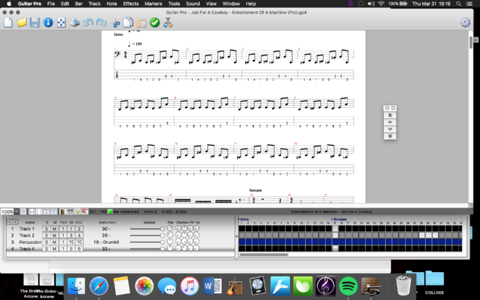All the "cons" of tablature listed by others I'm with 100%!! However, one good use I've found is for tricky passages and using tab to help remember one ideal fingering for said passage like this whole tone lick(example1)View attachment 834890
I have many options on how to get where I'm going, but I also will memorize and be able to transpose it easier with one ideal fingering use slides and pull off 's....so tab *can* be a good time saver, but I always discouraged my students from relying on it!!
I discourage students from relying on any one single thing when it comes to music. Including standard staff notation since I've met many otherwise very good classical musicians who are completely lost without a written score in front of them.
I consider that an even greater handicap than not being able to read standard notation.

